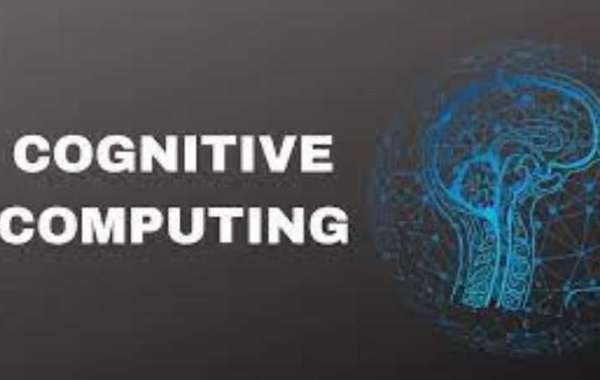The global cognitive computing market size attained a value of approximately USD 39.15 billion in 2023. The market is further expected to grow in the forecast period of 2024-2032 at a CAGR of 25.60%, reaching a value of around USD 309.36 billion by 2032. This explosive growth signifies the immense potential of cognitive computing across various industries, with healthcare standing at the forefront of this revolution.
Understanding Cognitive Computing in Healthcare
At its core, cognitive computing refers to a branch of Artificial Intelligence (AI) that simulates human thought processes. These systems can learn and adapt, analyze vast amounts of data, and even generate insights that would be difficult, if not impossible, for humans to achieve. In healthcare, cognitive computing unlocks a treasure trove of possibilities, empowering data-driven decision-making, personalized medicine, and improved patient outcomes.
The significance of cognitive computing in healthcare lies in its ability to:
- Analyze complex medical data: From patient records and medical images to genomic data and clinical trials, cognitive computing can process and analyze vast amounts of information, identifying patterns and trends that humans might miss.
- Support informed decision-making: By analyzing data and generating evidence-based insights, cognitive computing can assist healthcare professionals in making more accurate diagnoses, choosing optimal treatment plans, and predicting potential risks.
- Personalize medicine: By taking into account individual patient data, genetics, and medical history, cognitive computing can pave the way for personalized treatment plans, leading to better patient outcomes and improved resource allocation.
Applications of Cognitive Computing in Healthcare
The transformative potential of cognitive computing in healthcare extends across various domains, with some of the most impactful applications being:
A. Disease Diagnosis and Treatment:
- Enhanced diagnosis: Cognitive computing systems can analyze medical images (X-rays, MRIs) and patient data to identify diseases with greater accuracy and efficiency. This can lead to earlier diagnoses, enabling timely interventions and improved patient outcomes.
- Treatment planning decision support: These systems can analyze vast amounts of medical research and clinical trials data, aiding healthcare professionals in choosing the most effective treatment options for individual patients.
B. Drug Discovery and Development:
- Identifying drug candidates: Cognitive computing algorithms can analyze vast datasets of molecular structures and chemical compounds, pinpointing potential drug candidates that target specific diseases.
- Accelerated drug development: By analyzing clinical trial data and predicting potential outcomes, cognitive computing can significantly shorten the drug development timeline, bringing new treatments to patients faster.
Improving Patient Care and Outcomes
Cognitive computing plays a crucial role in not only diagnosing and treating diseases, but also in improving the overall patient experience and care outcomes. Here's how:
A. Predictive Analytics for Patient Management:
- Identifying at-risk populations: These sophisticated algorithms can analyze patient data to predict and identify individuals at risk for developing specific health conditions. This allows for early intervention and preventive measures.
- Chronic disease management: With the ability to analyze vast amounts of medical data, cognitive computing systems can personalize care plans for chronic diseases, promoting self-management and reducing complications.
B. Personalized Medicine and Treatment Plans:
- Data-driven treatment plans: By analyzing a patient's unique genetic makeup, medical history, and lifestyle factors, cognitive computing can help healthcare professionals tailor treatment plans to maximize effectiveness and minimize side effects.
- Improved patient outcomes and reduced costs: Personalized medicine can lead to better patient outcomes, shorter hospital stays, and ultimately, reduced healthcare costs.
Enhancing Healthcare Operations
The benefits of cognitive computing extend beyond direct patient care, significantly impacting healthcare operations and efficiency.
A. Streamlining Administrative Processes:
- Automated tasks: Repetitive administrative tasks like billing, scheduling appointments, and managing medical records can be automated using cognitive computing systems. This frees up valuable time for healthcare professionals to focus on patient care.
- Increased efficiency and cost savings: Automation in healthcare operations can lead to increased efficiency, reduced administrative costs, and improved overall workflow.
B. Improving Healthcare Quality and Safety:
- Identifying patterns and trends: Cognitive computing can analyze clinical data to identify patterns and trends related to patient safety and quality of care. This enables healthcare institutions to identify potential risks and implement preventive measures.
- Reducing medical errors: By analyzing patient data and medical records, cognitive computing systems can help identify potential medication errors and other safety risks, leading to improved patient outcomes.







